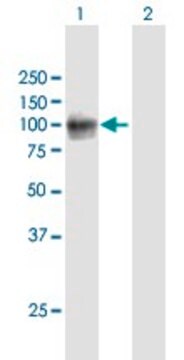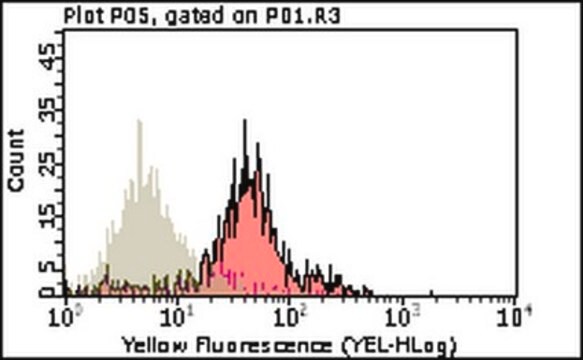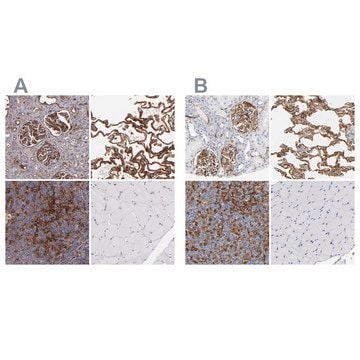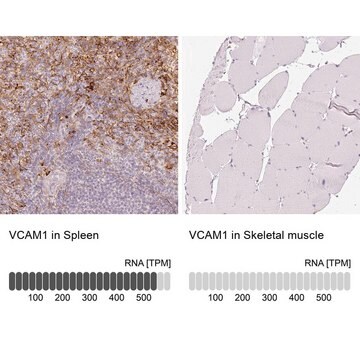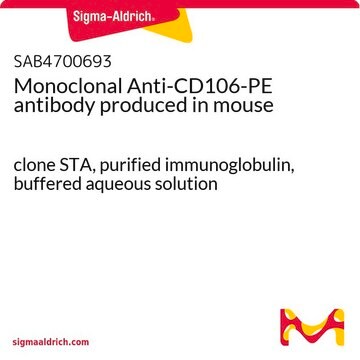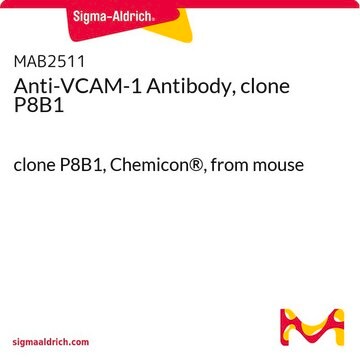CBL1300
Anti-VCAM-1 Antibody, clone M/K
clone M/K - 2, Chemicon®, from rat
Synonym(s):
CD106
About This Item
Recommended Products
biological source
rat
Quality Level
antibody form
purified antibody
antibody product type
primary antibodies
clone
M/K - 2, monoclonal
species reactivity
mouse
manufacturer/tradename
Chemicon®
technique(s)
flow cytometry: suitable
immunohistochemistry: suitable
immunoprecipitation (IP): suitable
isotype
IgG1κ
NCBI accession no.
UniProt accession no.
shipped in
wet ice
target post-translational modification
unmodified
Gene Information
human ... L1CAM(3897) , VCAM1(7412)
Specificity
Application
Cell adhesion assays
Inhibition of lymphopoieisis in Whitlock-Witte long-term marrow cultures
Immunoprecipitation of the VCAM-1 integrin complex
Detection of VCAM-1 cells by immunofluorescence and immunohistochemical staining: acetone or fresh frozen sections work best; although zinc formalin or PLP fixations are reported to work but they have not be verified by Chemicon.
Optimal working dilutions must be determined by the end user.
Linkage
Physical form
Analysis Note
EOMA and BMS2 endothelial cell lysates
Other Notes
Legal Information
Not finding the right product?
Try our Product Selector Tool.
Storage Class Code
10 - Combustible liquids
WGK
WGK 2
Flash Point(F)
Not applicable
Flash Point(C)
Not applicable
Certificates of Analysis (COA)
Search for Certificates of Analysis (COA) by entering the products Lot/Batch Number. Lot and Batch Numbers can be found on a product’s label following the words ‘Lot’ or ‘Batch’.
Already Own This Product?
Find documentation for the products that you have recently purchased in the Document Library.
Our team of scientists has experience in all areas of research including Life Science, Material Science, Chemical Synthesis, Chromatography, Analytical and many others.
Contact Technical Service